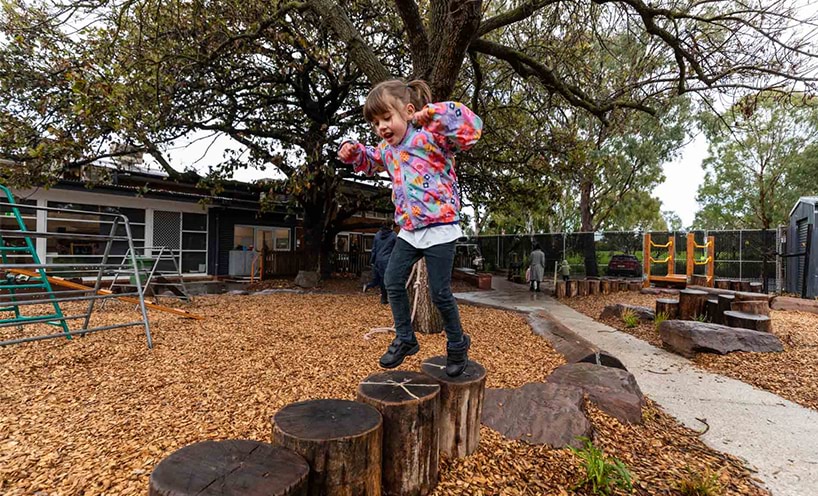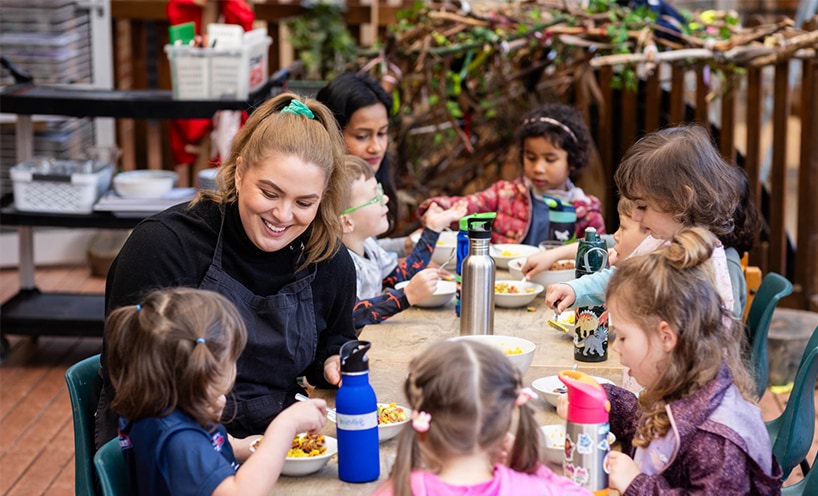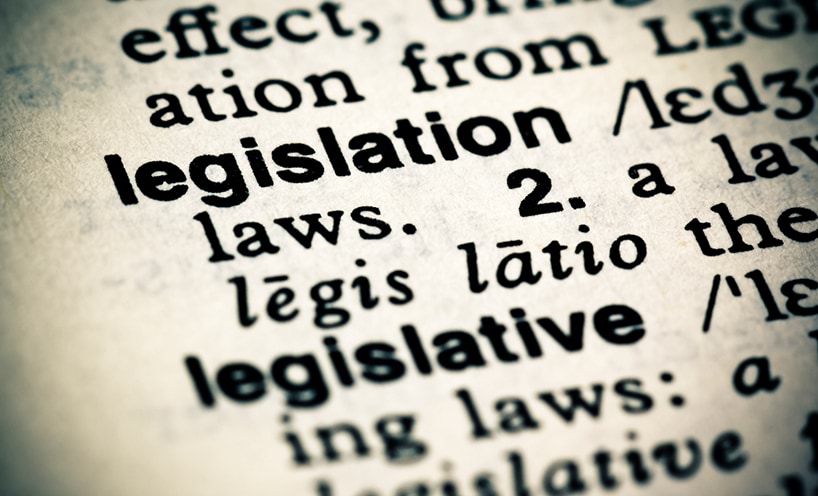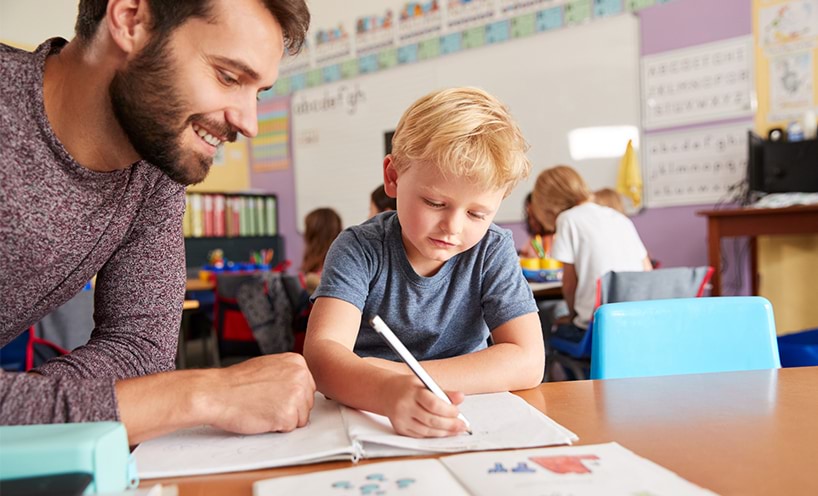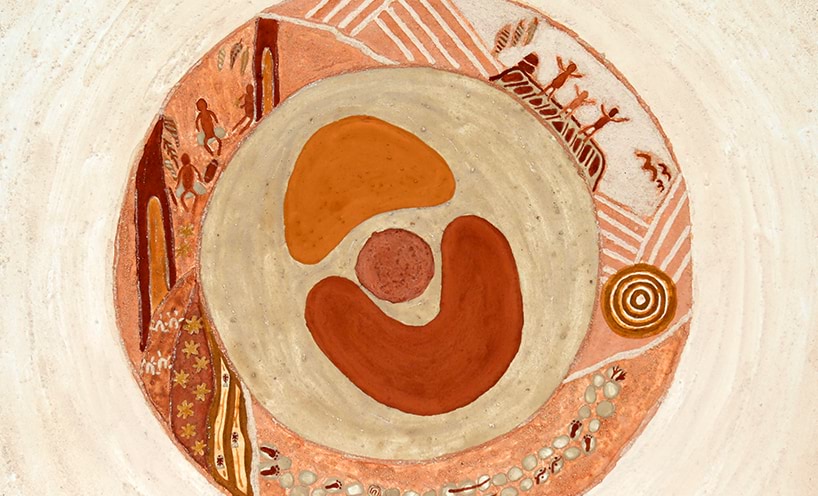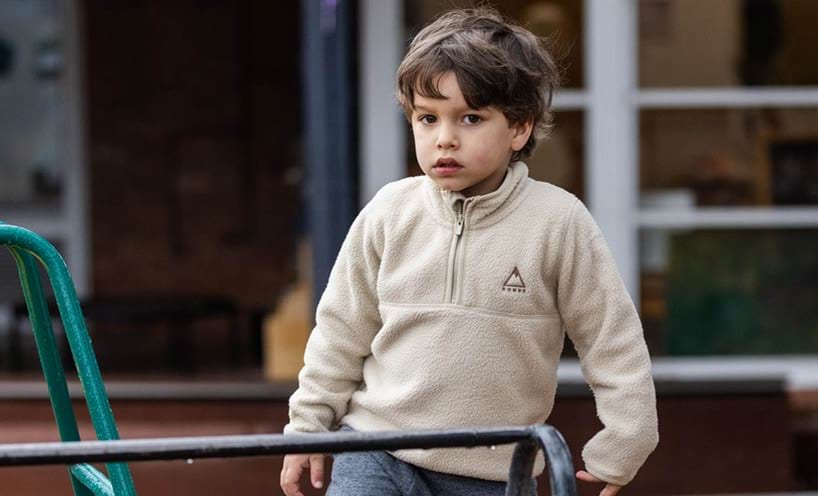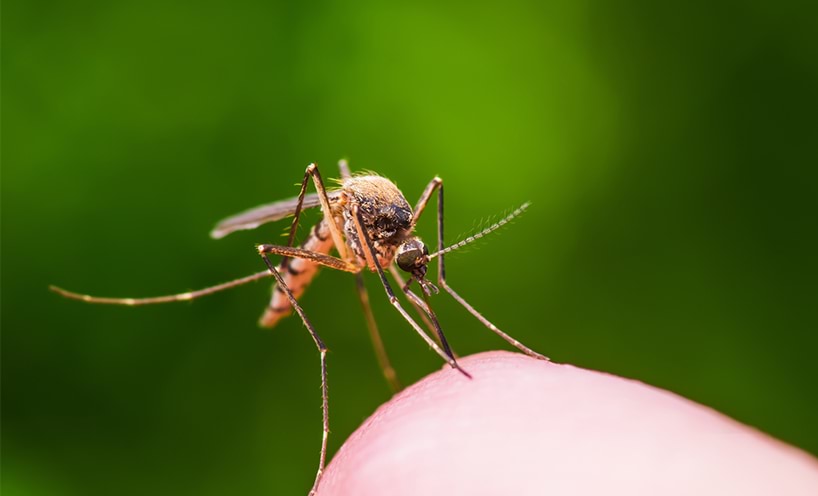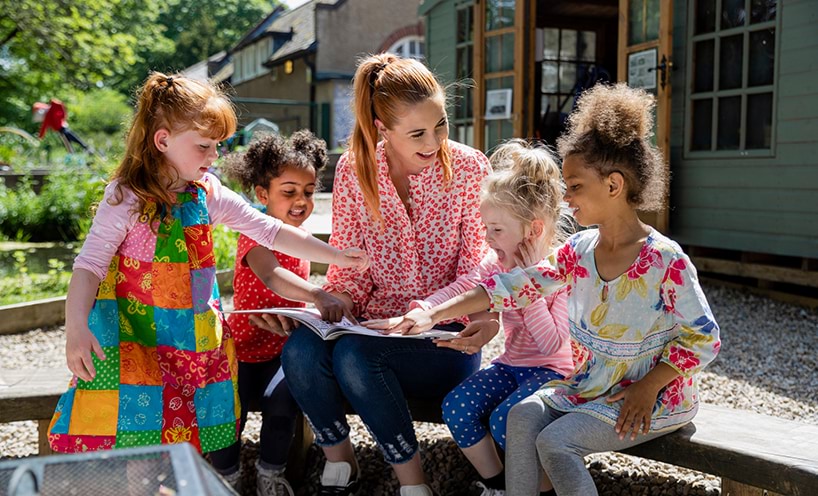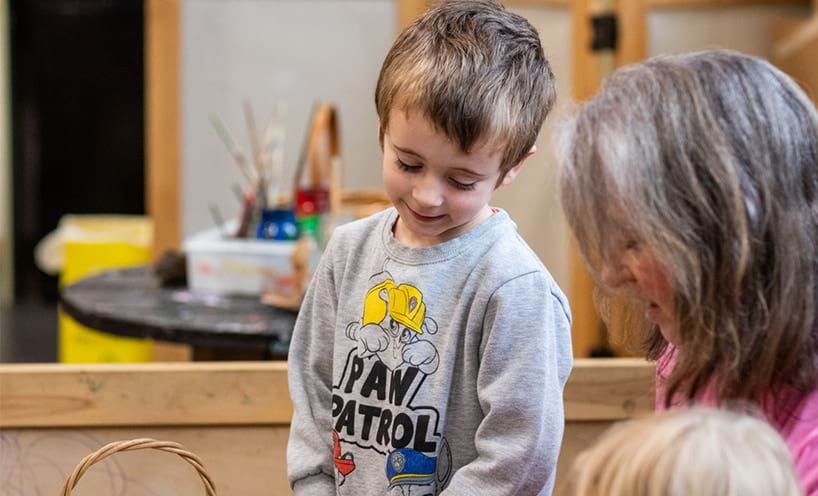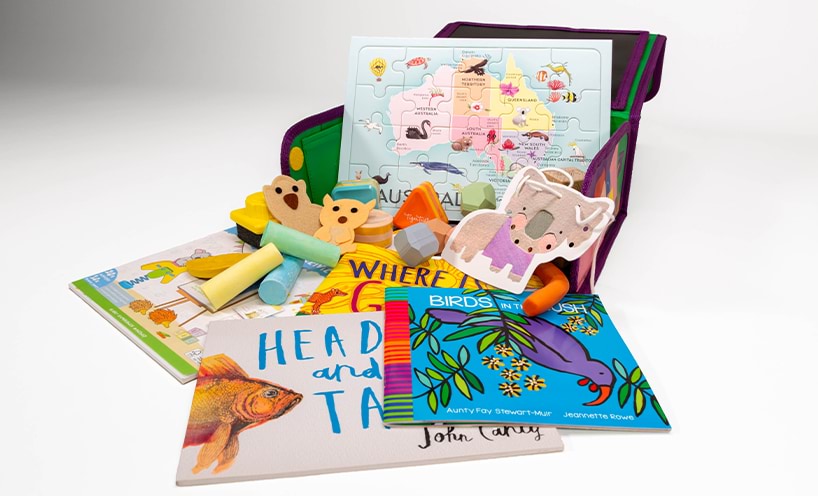- Published by:
- Department of Education
- Date:
- 7 Feb 2024
The Early Childhood Update e-newsletter is sent to early childhood teachers and workers, but is open to anyone interested in best practice in early years education and evidence-based teaching approaches. Subscribe here to receive the e-newsletter(opens in a new window).
Welcome to 2024
Building and supporting the early childhood workforce is a big priority again this year.
Some information on this webpage is out of date following the 2024/2025 budget. In the short term, please refer to The Best Start, Best Life reforms.
Dear early childhood education and care services
Welcome to 2024!
I hope you all had a safe and happy time over the holidays and feel refreshed and ready for the year ahead.
As we begin the new year, I’d also like to acknowledge that for many Victorians, the holidays were spent dealing with the recent storms and floods in parts of our state, and reiterate the department’s support as affected services take on the task of recovery.
For any early childhood education and care services wanting to know more about preparing for and managing emergencies, please refer to the emergency management in early childhood services webpage.
Last year was a busy time for early childhood education, and 2024 promises to be just as energised.
Since Term 1 commenced, we’ve welcomed more than 130,000 children to Three- and Four-Year-Old Kindergarten for 2024. Victorian Government funding has supported more than 30 kindergartens to be built or expanded by sector partners. A further 30 new kindergarten infrastructure projects delivered by the Victorian Government are opening across the state.
For our Best Start, Best Life reforms, we’ll be responding to last year’s consultation report findings and continuing to attract the more than 11,000 teachers and educators we need over the decade.
To do this, we are expanding pathways to early childhood education careers, supporting upskilling, encouraging more people from all backgrounds to choose a career in early childhood education, and enhancing the transition from study to practice.
You can learn more about how we’re growing our workforce in this month’s article on our early childhood partnerships.
For current leaders, I am looking forward to the inaugural Best Start, Best Life Evening Leadership Series. The series will share the department’s vision for the next stage of the reforms and feature the insights of our guest speakers, which include leaders in early childhood education and care, researchers and leadership experts.
The kick-off event is on Wednesday 6 March 2024 at the Victorian Academy of Teaching and Leadership in North Melbourne, and we’re excited to welcome as many service leaders as are able to join us either in-person or online.
In this edition and the ones to follow, Early Childhood Update will continue to share opportunities available to people already in the sector, as well as those looking to join.
For a summary of the supports available, check out Supporting our workforce through Best Start, Best Life reforms.
As you know, we are also working closely with the Victorian Curriculum and Assessment Authority (VCAA) to revise the Victorian Early Years Learning and Development Framework (VEYLDF). Thank you for your support in attending our focus groups on this revision.
The VCAA has also launched a survey for early childhood professionals, and I invite you to share this article with your colleagues and professional partners, to ensure we reach as many people as possible.
Your expertise makes a significant difference to the lives of children and families in the communities we serve, and I’m looking forward to working with you to continue to lift these outcomes in 2024.
Bronwen FitzGerald
A/Deputy Secretary
Early Childhood Education
Best Start, Best Life Evening Leadership Series
Learn how to lead your teams into the future with these leadership events coming up in terms 1 and 4, 2024.
In 2024, the department is delivering new events to support Victoria’s early childhood leaders in their continued implementation of the Best Start, Best Life reforms. As part of this work, we’re introducing the Best Start, Best Life Evening Leadership Series.
The series will provide valuable expertise and advice to service leaders on how to prepare their teams and communities for these nation-leading reforms. Each event will feature highly regarded guest speakers, including leaders in early childhood education and care, researchers, and leadership experts.
This year’s events will be available in-person and online and take place in terms 1 and 4, 2024. They are designed to complement the popular Early Learning Leadership Forums, which are scheduled for terms 2 and 3 this year.
Keep a look-out for further details about these leadership forums, as well as registration details for the Term 4, 2024, events in our leadership series.
Leading for Impact
The inaugural event, Leading for Impact, will take place on Wednesday 6 March 2024 at the Victorian Academy of Teaching and Leadership in North Melbourne, and available online.
The free one-hour session will equip leaders with a vision for Pre-Prep and provide practical advice and expertise on preparing their teams and members for change.
Any service leader within Victoria’s early childhood sector is invited to attend, including:
- service managers and administrators
- committee of management members.
Event details
Date: Wednesday 6 March 2024
Time: 6 pm to 7 pm. Registration and refreshments from 5:30 pm.
Platform: in-person (North Melbourne) or online
Cost: free.
To register to attend, refer to the TryBooking website.
Find out more
For more information, refer to Early childhood education leadership events.
For further enquiries, contact Charlene Smith, manager, Practitioner and Leadership Development:
- phone: 03 7022 2704
- email: ec.forums.networks@education.vic.gov.au
Express your interest in the Victorian Educational Leadership Program
Build your leadership and teaching skills for delivering high-quality kindergarten programs with these free course options.
Registrations are open for the Victorian Educational Leadership Program (VELP), running in terms 2 and 3, 2024.
The free program includes 2 different micro-credential course options, available to all educational leaders in Victorian government-funded kindergarten services.
The program is being delivered through the Queensland University of Technology, in partnership with the Early Learning and Care Council of Australia.
Expressions of interest close on Wednesday 6 March 2024.
Course offering
The courses offered through the VELP align with the Victorian Early Years Learning and Development Framework and the National Quality Standard. They will support educational leaders to:
- understand, identify, drive and implement quality practice
- use data and evidence to support practice change
- understand and implement strategies to support children’s continuity of early learning.
The VELP comprises 2 micro-credentials for educational leaders to choose from: one for new/aspiring educational leaders, and one for experienced educational leaders (outlined below).
Educational Leaders in Victorian government-funded kindergarten programs should select the one best suited to them.
VELP Foundations
Designed for new (one to 2 years’ experience) or aspiring educational leaders, this course is focused on the fundamentals of how to be an educational leader, including:
- leadership skills
- change management theory
- facilitating team teaching
- observation and assessment.
VELP Advanced
Designed for experienced (2 or more years’ experience) educational leaders, this course is focused on advanced leadership models, fostering effective team teaching, and driving reflective practice in teams.
Cost
The VELP is free.
The department is also offering a small financial contribution towards the cost of backfilling for staff undertaking the program. Further information will be provided to confirmed participants.
Find out more
For more information or to express interest, refer to the Victorian Educational Leadership Program website.
For further enquiries about the program, contact the Queensland University of Technology by email: velp@qut.edu.au
Building our workforce through Early Childhood Tertiary Partnerships
See how we’re attracting early childhood educators and teachers to the profession.
Some information on this webpage is out of date following the 2024/2025 budget. In the short term, please refer to The Best Start, Best Life reforms.
Education pathways into the early childhood workforce have been bolstered to attract the thousands of new staff needed to roll out the Best Start, Best Life reforms.
With more than 11,000 new early childhood educators and teachers needed for the reforms, the department has launched the new Early Childhood Tertiary Partnerships (ECTP) program.
The program will improve educator and teacher supply by attracting new professionals into the early childhood workforce.
Early Childhood Tertiary Partnerships program
The ECTP program is an expansion of the Early Childhood Innovative Initial Teacher Education program. The expansion will enable more tertiary education providers – including universities, dual sector providers, TAFEs and Registered Training Organisations – to offer students increased support and deliver high-quality, work-ready early childhood educator and teacher graduates.
The program supports students into 4 levels of early childhood education qualifications – certificate III, diploma, bachelor and graduate diploma courses.
The programs are aimed at attracting more people to the sector, including:
- people who are new to the workforce
- those returning to the workforce
- people from a culturally and linguistically diverse background
- people who may be interested in a career change.
What’s on offer?
The first round of available programs includes teacher programs from Federation University, Monash University and Swinburne University.
Also on offer are educator programs from Chisholm Institute, Gowrie Victoria, VICSEG New Futures, Victoria University Polytechnic and Wodonga Institute of TAFE.
Check out our website for more information on each of the available programs, with information on further programs set to be available soon.
We invite you to share this link with your networks.
Find out more
For more information, refer to Early Childhood Tertiary Partnerships.
For further enquiries, contact the Workforce Policy and Programs Division by email: early.childhood.iite@education.vic.gov.au
Complying with Australia’s Foreign Relations Act
Early childhood services interested in forming new or varying existing foreign arrangements in 2024 must submit all forms to the department by 15 March 2024.
The department is seeking expressions of interest (EOI) from all school and school-council run early childhood education and care (ECEC) services wanting to form a new or vary an existing foreign arrangement in 2024.
This is in line with Australia’s foreign policy objectives under the Australia’s Foreign Relations (State and Territory Arrangements) Act 2020.
Under the Act, all school and school council-run ECEC services must submit their proposed arrangements, or variations to existing arrangements, to the Australian Government’s Department of Foreign Affairs and Trade, through our department.
The department’s EOI process for new or existing foreign arrangements takes place twice a year ‒ in Term 1, and in June.
Arrangements that need approval
The legislation extends to any written arrangements, agreements or contracts between school and school-council run ECEC services, as well as foreign entities such as overseas governments, universities, and other schools.
Examples of foreign arrangements requiring Australian Government approval include:
- partnerships with foreign ECEC services
- agreements
- written arrangements
- contracts
- memoranda of understanding (MoU)
- teacher-exchange programs.
Arrangements may be in any form and do not need to be signed or legally binding to fall within the scope of the Act.
What’s the first step?
Before negotiating or entering into arrangements with foreign entities, the first step is to contact the department’s Stakeholder Engagement team within our International Education Division.
The Stakeholder Engagement team will tell you which documents to complete, when to complete them by and how to submit them.
This ensures that arrangements between state and territory government departments and their international counterparts are aligned with Australia’s foreign policy objectives.
How to submit an EOI
If you are considering varying or entering into a new foreign arrangement between now and June 2024, you need to complete these documents and submit them to the Stakeholder Engagement team by Friday 15 March 2024:
- foreign arrangements form for schools/ECEC services
- draft Memorandum of Understanding or updated foreign arrangement.
Find out more
For further enquiries, contact the Stakeholder Engagement team by email: ied.stakeholder.engagement@education.vic.gov.au.
Enhancing disability inclusion in Victorian kindergartens
Find out how we are promoting inclusive services for children with disability, complex medical need or development delay.
Ensuring our early childhood services are inclusive for all children and families is a priority for the department.
We are committed to ensuring all children can participate in and benefit from high-quality early childhood education. We also recognise the benefits for all children when they are learning alongside peers with diverse abilities and backgrounds.
In 2024, we have a range of activities planned to support this priority, and we’re pleased to share an update on these plans below.
National Disability Insurance Scheme review
The Commonwealth Government recently released a review into the National Disability Insurance Scheme (NDIS). The Department of Education is working with all Victorian Government departments to consider these recommendations.
The review recommends changes to improve outcomes of children with disability, including changes to supports in and alongside early childhood education.
The Victorian Government is considering these recommendations in collaboration with the Commonwealth and other states and territories, to consider opportunities to strengthen supports for children with additional needs.
Strengthening the Kindergarten Inclusion Support program
A key project for Victoria in the year ahead is improving our Kindergarten Inclusion Support (KIS) program application approach to enhance disability inclusion.
With an aim of streamlining the application process, we will engage external experts to assess applications for inclusion supports.
We will introduce changes to this process that help services to access more timely support through a staged approach, with the full change set for implementation in 2025.
We will share further updates with you about this project later in 2024.
Preschool Field Officer program expansion
We will expand the Preschool Field Officer program (PSFO) to meet the demand for support in areas that have seen major growth in 4-year-old kinder enrolments.
The program provides educators and teachers access to tailored support, improving their skills and confidence in providing inclusive programs that are responsive to the needs of all children.
Further funding has been allocated to 10 providers to deliver the program to 29 local government areas in 2024, based on the number of 4-year-old kinder enrolments.
For information about who has received additional funding, refer to the Preschool Field Officer program (PSFO) website or contact the department by email: preschool.fieldofficer@education.vic.gov.au
Disability Inclusion Research in Kindergartens
The department is conducting research into best practice assessment methods and service responses to enable greater inclusion of children with additional needs in kindergartens.
The two-year research will inform advice provided to the government about opportunities to improve support for children with additional needs in the medium to long term.
There are two key activities in 2024:
- A disability inclusion needs survey to understand the number and distribution of children with additional needs in state-funded kindergarten programs.
- Designing and testing a new Kindergarten Inclusion Support Profile (KIS Profile) to assess a child’s functional strengths and identify adjustments or resources that may be required to ensure inclusive learning and participation among their peers.
Early childhood education and care services with funded kindergarten programs will be invited to participate in the survey and testing of the new KIS Profile.
There will be no changes to current kindergarten inclusion support programs during this research period. Services participating in the research can apply through the process for the Preschool Field Officer program, Kindergarten Inclusion Support program and Kindergarten Inclusion Support Specialised Equipment Program.
Services may contact the Inclusion Policy and Reform team for advice by emailing: EC.Inclusion.Research@education.vic.gov.au(opens in a new window).
Find out more
For more information, refer to:
- Kindergarten Inclusion Support Program
- Preschool Field Officer Program
- The National Disability Insurance Scheme Review.
For further enquiries:
- on the PSFO program, email: preschool.fieldofficer@education.vic.gov.au
- on the KIS program, email: kindergarten.inclusion.support@education.vic.gov.au
- on the new research process, contact Rose Kloester, Reform Lead, Inclusion Policy and Reform, by email: rose.kloester@education.vic.gov.au
Support our revision of the Victorian Early Years Learning and Development Framework
Complete our short survey by 1 March 2024 to contribute to the future of early years education in Victoria.
The Victorian Curriculum and Assessment Authority (VCAA) and the department are revising the Victorian Early Years Learning and Development Framework (VEYLDF).
We are calling for early childhood professionals to lend their expertise to the cause, by completing our VEYLDF Revision survey. Your insights can help shape the future of early childhood education in Victoria.
All professionals working in the early years sector are invited to participate and help enhance the framework for delivering early years learning.
Important details about the survey
Through our anonymous and confidential VEYLDF Revision Survey, we are reviewing what works well in your practice and what can be improved.
The survey will take up to 20 minutes to complete and is open until Friday 1 March 2024.
To access the survey, please refer to this online form.
Find out more
For more information on the survey, visit VEYLDF Revision and sign up for the VCAA Early Years Alert.
For further enquiries, contact the Early Years Unit at VCAA by email: veyldf@education.vic.gov.au
Victoria’s visa program ready to boost our workforce
Explore the opportunities available for services and early childhood teachers in the 2023–24 Skilled Migration Visa Nomination Program.
As the kindergarten year starts for Victoria’s early childhood education and care services, a free visa nomination program boosting our early learning workforce is also taking ‘enrolments’.
This is big news for both services and early childhood teachers (ECTs), as the free 2023–24 Skilled Migration Visa Nomination Program offers pathways to living and teaching in Victoria, including possible permanent residency.
We’re encouraging both services and ECTs to investigate this opportunity:
- services can promote the program to ECTs currently on temporary visas
- eligible ECTs living in Victoria and overseas are encouraged to submit a registration of interest on the Live in Melbourne website.
Skilled visa nomination program
By enabling free visa nominations, the Victorian Government’s 2023–24 Skilled Migration Visa Nomination Program supports skilled migrants keen to live and work in Victoria.
ECTs are on the skilled occupation list and are eligible to apply for a skilled migration visa nomination. The visa nomination program applies to:
- Skilled nominated visa (subclass 190) – a permanent visa that allows skilled migrants to reside and work anywhere within Victoria, including Melbourne
- Skilled regional (provisional) visa (subclass 491) – a 5-year provisional visa for living and working in regional Victoria, with a pathway to permanent residency.
Visa program benefits
Victoria’s visa nomination program offers cost-free opportunities right now, including:
- adding 5 points to someone’s overall Australian visa application points test
- no need for a job or employer sponsorship
- unrestricted work rights in accordance with visa conditions
- a pathway to permanent residency.
Find out more
For more information, including eligibility criteria, refer to the Live in Melbourne website.
Protecting against mosquito-borne diseases
Follow and share advice with parents and carers to help protect your community against mosquito-borne diseases.
This article contains important information to help all Victorian early childhood education and care (ECEC) services minimise the spread of mosquito-borne diseases such as Murray Valley encephalitis virus and Japanese encephalitis virus infections.
Warm and wet weather can result in greater numbers of mosquitoes and increased risk of illnesses from mosquito bites.
The best protection against mosquito-borne illness is to avoid mosquito bites.
Please share this information with your staff and use the template newsletter text to communicate with parents and carers.
How to protect against mosquito-borne diseases
Mosquitoes are generally more active around dusk and dawn but can also bite during the day. The peak mosquito period is from October to March.
Consistent with community health advice, there are some simple steps that families and staff can take to help protect against mosquito bites:
- use mosquito repellent that contains picaridin or DEET on exposed skin if outdoors when mosquitoes are observed. It is important to review the instructions on repellent containers to ensure it is suitable for younger children. In some instances, repellent can be applied to clothing and should be avoided on young children’s hands, eyes and mouth
- wear long, loose-fitting clothing if mosquitoes are around and cover exposed skin as much as possible
- limiting outdoor activity when mosquitos are active.
For advice about using and purchasing insect repellent, please see Insect repellent.
Services can also reduce the risk of mosquito bites by:
- preventing mosquitoes from getting inside, for example by closing windows and doors or using fly screens, particularly at times when mosquitoes are active. It is recommended you use air purifiers where available to reduce the risk of airborne illnesses
- preventing mosquitoes from breeding around the service, for example by:
- cutting back long grass and shrubs where mosquitoes can rest, especially around outdoor areas where people gather
- removing or emptying containers capable of holding water (including rubbish bins, pots and bird baths)
- checking and maintaining rainwater tanks and water storage vessels.
Staff or families with any health concerns should see their doctor or phone Nurse-on-call: 1300 606 024 (available 24 hours).
Find out more
For more information on protecting against mosquito-borne diseases, refer to Mosquitoes can carry diseases – Better Health Channel.
For information about mosquito-borne diseases known in Victoria, including, but not limited to Japanese encephalitis, Murray Valley encephalitis, Ross River Virus and West Nile Virus/Kunjin, refer to the Better Health Channel.
For health advice, contact the department by email: health.advice@education.vic.gov.au
Supporting our workforce through Best Start, Best Life reforms
Learn more about the range of professional learning supports available, including induction grants, mentoring support and training.
The Best Start, Best Life Workforce Strategy is delivering a range of initiatives aimed at attracting, retaining and developing our early childhood workforce, and we’ll be letting you know the latest about these supports through future editions of Early Childhood Update.
Building and enhancing retention supports
In 2024, we’re building our current supports aimed at improving the retention of our kindergarten workforce by expanding:
- the Provisionally Registered Teacher Mentor Program to mentor more than 230 provisionally registered teachers across the 2023–24 financial year to help them to gain full registration with the Victorian Institute of Teaching (VIT)
- the Innovation Grants Program to support more service providers to develop innovative, place-based solutions to improve the retention of early career early childhood professionals.
We are also developing a new state-wide Induction Supports Program to provide high-quality induction for new and returning teachers and educators to begin their careers.
Continuing existing retention supports
This year, we are also continuing to provide a range of existing supports. This includes grants to support provisionally registered teachers to progress to full teacher registration with the VIT, and Beginning Teacher Conferences for kindergarten teachers in the early stages of their careers.
We will also continue to offer the End to End Career supports program for kindergarten teachers in their first 5 years of teaching, including:
- access to individual coaching for all first-year teachers
- communities of practice for teachers with 2 to 5 years of experience
- an alumni conference to help these teachers stay connected and share their expertise.
Support career development and workforce wellbeing
We’re improving the wellbeing of our workforce with a range of initiatives, including:
- targeted coaching support for early childhood teachers and educators returning to or joining the workforce after working in the field interstate or overseas
- the Capability Assessment Guide to support teachers and providers undertaking career progression capability assessments
- the Effective Mentoring Program for experienced teachers to enhance their mentoring knowledge and skills to support graduate and returning teachers achieve full registration
- Coach and Mentor Training for experienced teachers and educators.
Contact your local Early Childhood Improvement Branch for details.
Support effective leadership
We’re supporting leadership this year through initiatives such as the Early Learning Leadership Forums.
These forums are delivered twice a year in each department area to bring together early childhood leaders to network and connect, engage with the department and build a shared understanding of early childhood reforms. Look out for your invitation to attend Leadership Forums in terms 2 and 3, 2024.
These forums are part of a range of initiatives to support leaders in the sector, which also include the Victorian Educational Leadership Program and the Best Start, Best Life Evening Leadership Series covered in this month’s edition of Early Childhood Update.
Find out more
For more information on the full range of supports available, refer to Early childhood education – information for professionals.
Victorian Early Childhood Teacher and Educator Incentives programs for 2023–24
See what incentives are available for early childhood teachers and educators taking up new roles.
The Victorian Government is offering a range of incentives for qualified early childhood teachers and educators commencing roles delivering Three-Year-Old Kindergarten programs in Victoria.
We have outlined the incentives and application processes below and invite you to share this information with your networks.
Individual incentives
Individual incentives of $9,000 are available for eligible early childhood teachers and educators currently working outside the Victorian early childhood sector who accept a role at any service delivering funded Three-Year-Old Kindergarten in 2024.
Location incentives
Location incentives of between $9,000 and $50,000 are available for eligible early childhood teachers and educators who accept a role at selected services.
Eligible applicants can apply to receive both the individual and location incentive payments.
Relocation support
Relocation supplements worth up to $8,000 are also available to anyone who receives an incentive and moves more than 100 kilometres from their current place of residence to take up the role.
Submit an application
To submit an incentive payment application, follow these steps:
- review the program guidelines for teachers and educators prior to lodging an application, to ensure you are eligible for an incentive. Refer to the Eligibility Checker at Appendix 1 of the guidelines to help you
- sign up or log in to the incentives portal administered by Busy at Work on behalf of the department
- click on the early childhood teacher incentives or targeted educator incentives tile in the Client Portal
- complete the online application within 60 days of accepting a role.
As part of the application process, you will need to provide Busy at Work with evidence to support your application. This includes an Employer Declaration form and evidence showing that you meet the eligibility requirements outlined in Appendix 1 of the relevant program guidelines.
About the Early Childhood Jobs website
For job seekers, the Early Childhood Jobs website connects early childhood professionals with employers seeking to fill vacancies across Victoria.
You can search for jobs that have been pre-approved for an incentive by selecting ‘DE Location Incentive’ and choosing the option from the drop-down box.
Find out more
For more information, refer to Financial support to study and work in early childhood.
For further enquiries, contact Busy at Work:
- phone: 1300 161 396
- email: EC.Financial.Support@education.vic.gov.au
Kinder Kits are here for 2024!
Find out who’s eligible to receive kits when your order arrives during Term 1, 2024, and how to promote them.
The 2024 Kinder Kits are being delivered to services in Term 1, 2024, so please look out for communications from our contracted supplier, Bao & Co., about your delivery.
Kinder Kits are activity boxes filled with books, educational toys and activities made especially for 3-year-olds to enjoy at home.
Along with the Kinder Kits, your delivery will include a poster for your service that explains:
- what a Kinder Kit is
- who is eligible to receive a kit
- how to access additional translated printed materials.
Promoting Kinder Kits
You can promote the Kinder Kits using the resources and materials available at Communicating about kindergarten with your community.
Resources include the:
- Kinder Kits toolkit – check out the toolkit for social media posts, website copy and a poster
- Kinder Kits: Guide for families video – this video is a great way for your team to understand the kits and how use them. You can share the video with families
- Translated resources – this page provides links to the Kinder Kit resources in multiple languages
- Kinder Kits webpage – refer to this page for videos, Auslan translations on the books and links to translated materials to help more families get the most out of their Kinder Kits.
Who is eligible to receive Kinder Kits?
To be eligible for a Kinder Kit in 2024, a child must be starting either:
- funded Three-Year-Old Kindergarten
- their first year of Early Start Kindergarten
- their first year of Access to Early Learning.
Please provide Kinder Kits exclusively to children aged 3 years and above. Children who begin funded Three-Year-Old Kindergarten at 2 years old should be given a kit when they turn 3.
Three-year-olds in long day care but not a funded Three-Year-Old Kindergarten program and 4-year-olds in kindergarten or long day care programs are not eligible to receive a Kinder Kit.
Find out more
For further enquiries, contact our Kinder Kits team by email: kinder.kits@education.vic.gov.au
